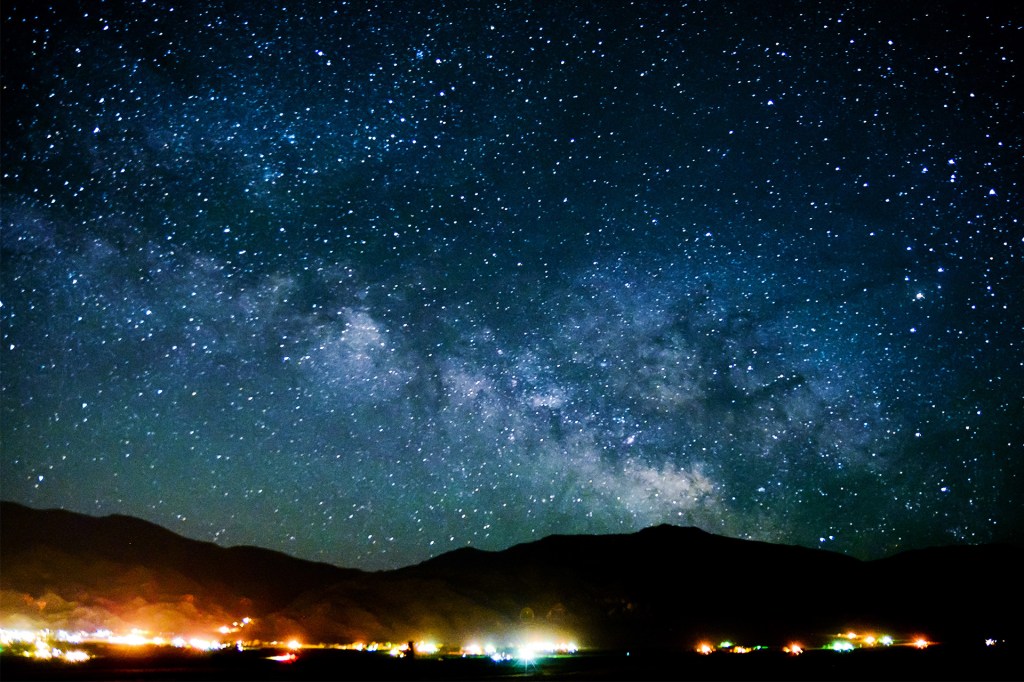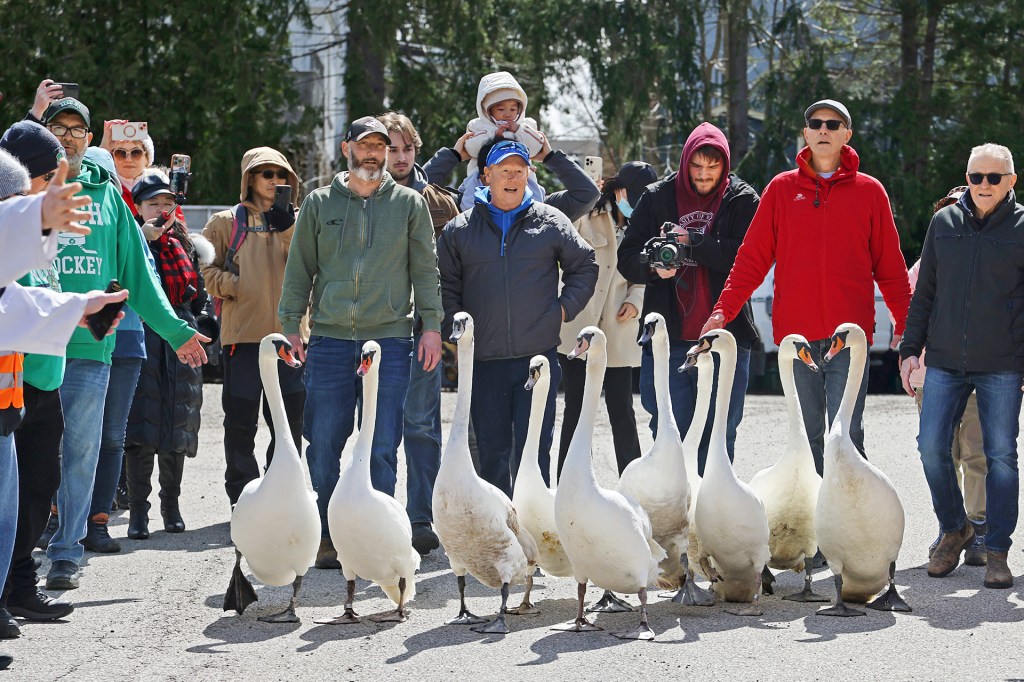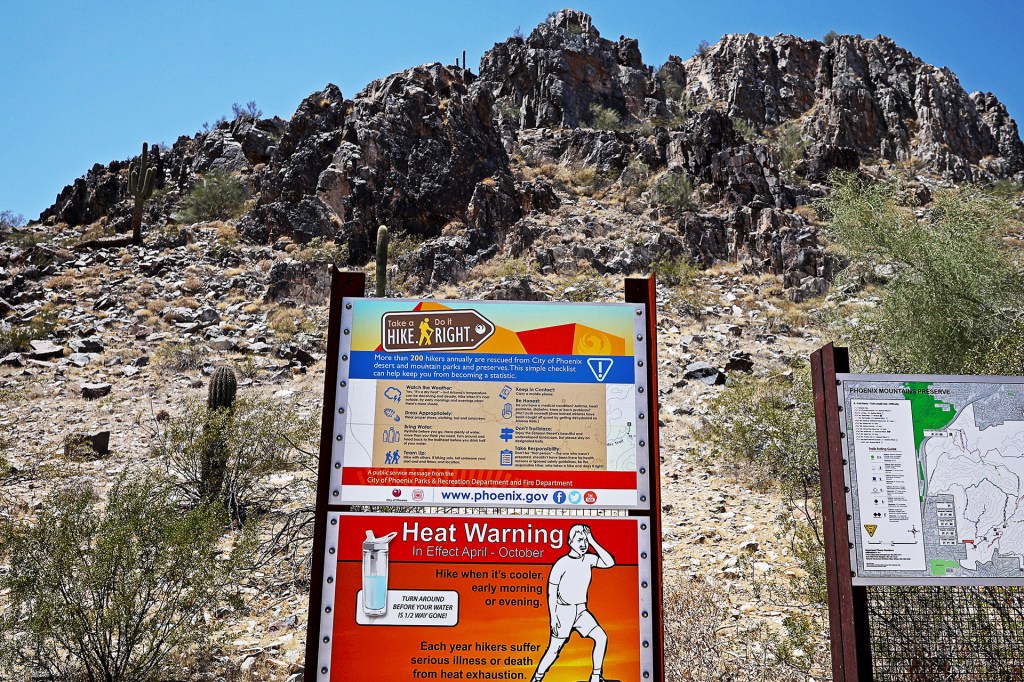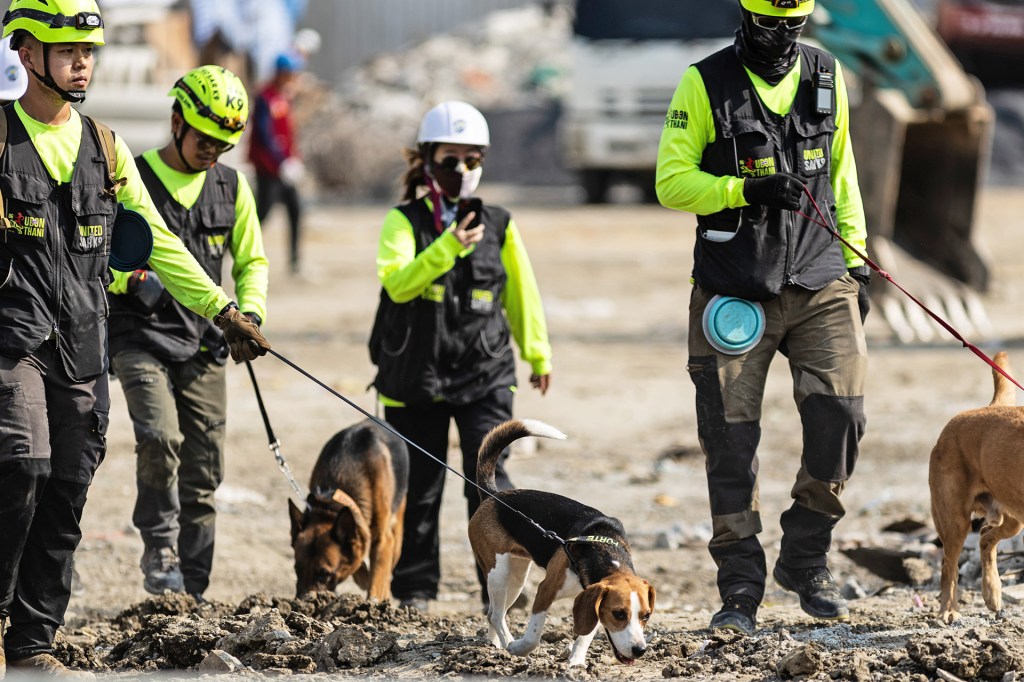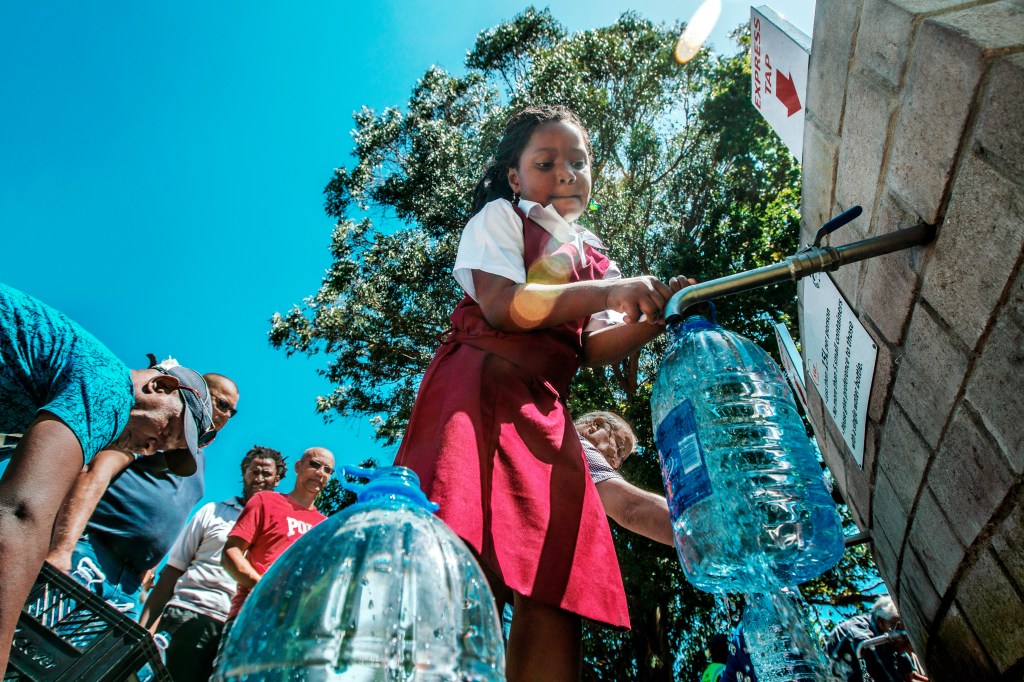
It is late at night. People in Cape Town, South Africa, line up to collect water from a spring. One by one they fill their plastic bottles. Each person can take up to 13 gallons. Security guards stand by to enforce
enforce
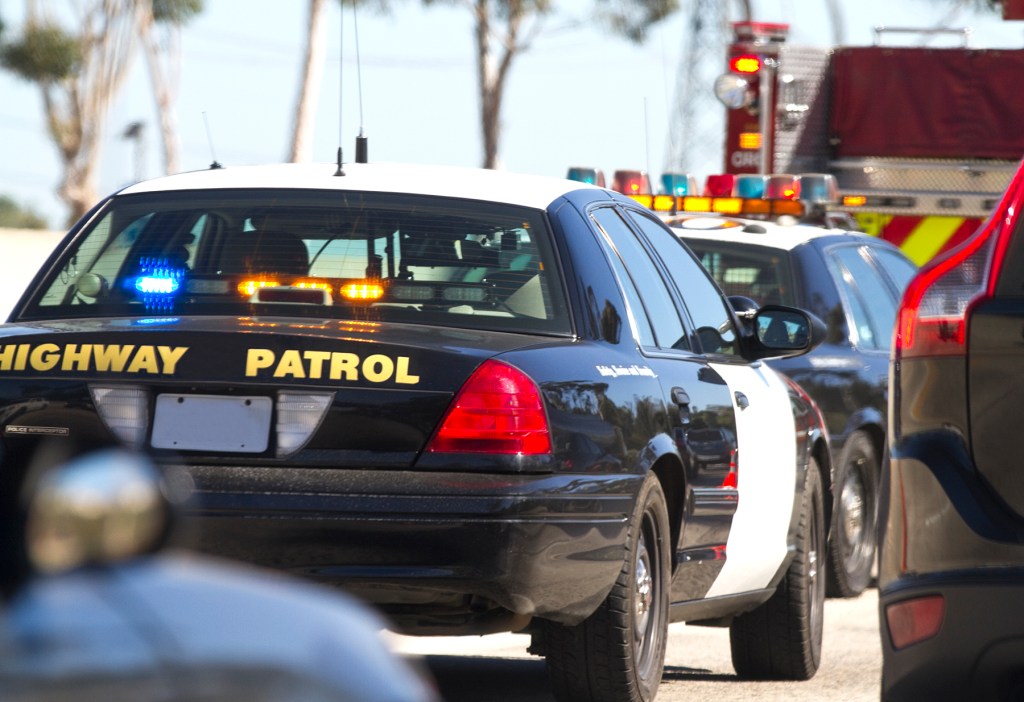 MCCAIG/GETTY IMAGES
to make sure a law or rule is obeyed
(verb)
Police will be patrolling roads to enforce the speed limit.
the rules. In a few months, that amount will be cut in half.
MCCAIG/GETTY IMAGES
to make sure a law or rule is obeyed
(verb)
Police will be patrolling roads to enforce the speed limit.
the rules. In a few months, that amount will be cut in half.
Cape Town is a city of 4 million people. It is running out of water. For three years, the city has faced a drought
drought
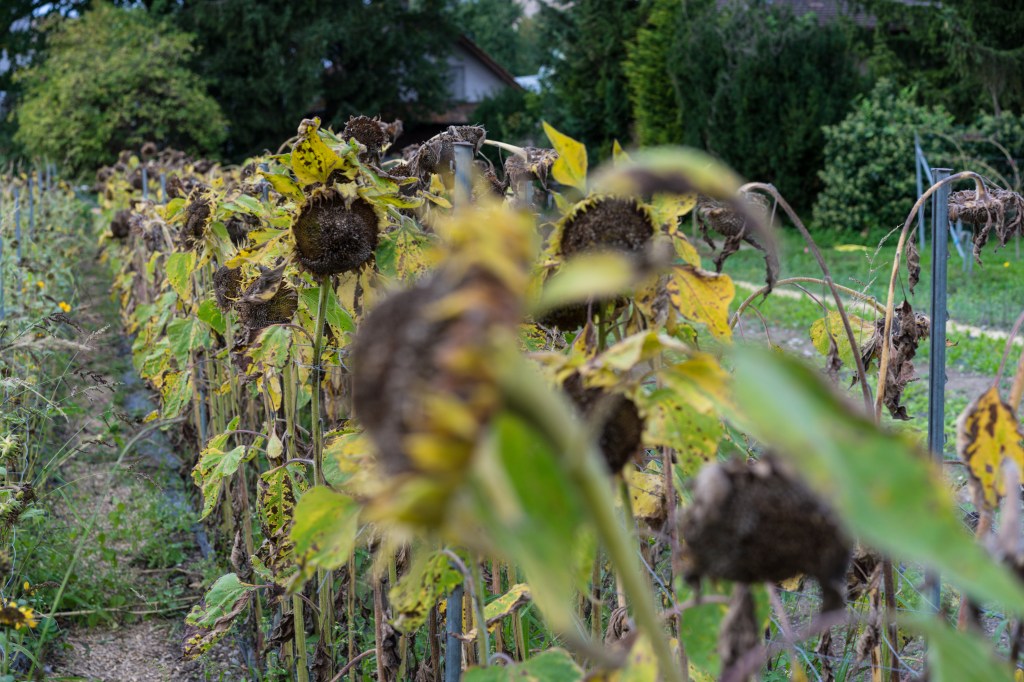 DESIGNOSAURUS/GETTY IMAGES
a long period of time when there is no rain
(noun)
During the drought, many of the flowers in our garden died.
. It is the worst in a century. Local reservoirs
reservoirs
DESIGNOSAURUS/GETTY IMAGES
a long period of time when there is no rain
(noun)
During the drought, many of the flowers in our garden died.
. It is the worst in a century. Local reservoirs
reservoirs
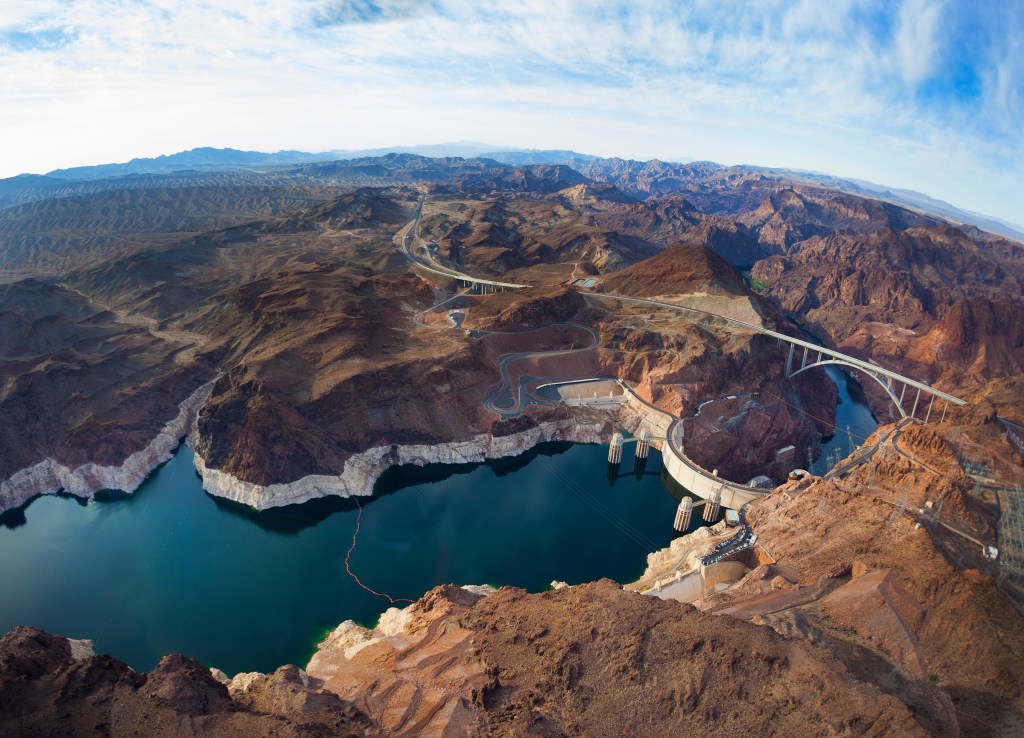 DEREK E. ROTHCHILD/GETTY IMAGES
a lake (either natural or artificial) where water is collected and stored for people to use
(noun)
Lake Mead is the largest water reservoir in the United States and stores water for people who live in Arizona, California, and Nevada.
are mostly sand and cracked earth. Officials are telling residents to conserve water. Otherwise, the city will one day be forced to turn off the supply to homes and businesses. That day is being called Day Zero. At press time, Day Zero was expected to be June 4. But the date may change based on water levels in local dams.
DEREK E. ROTHCHILD/GETTY IMAGES
a lake (either natural or artificial) where water is collected and stored for people to use
(noun)
Lake Mead is the largest water reservoir in the United States and stores water for people who live in Arizona, California, and Nevada.
are mostly sand and cracked earth. Officials are telling residents to conserve water. Otherwise, the city will one day be forced to turn off the supply to homes and businesses. That day is being called Day Zero. At press time, Day Zero was expected to be June 4. But the date may change based on water levels in local dams.
“There are a lot of people who have been in denial,” said Shirley Curry. She waited at a spring to get her share of water. “Now they suddenly realize this is for real.”
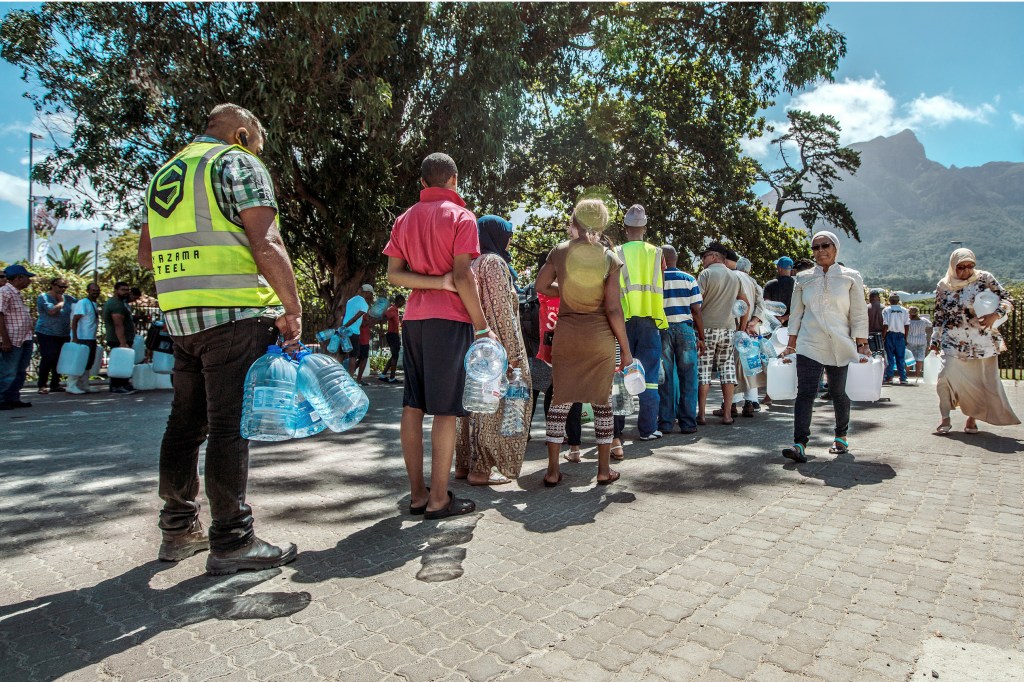
STOCKING UP People line up to collect water at one of Cape Town’s natural springs.
MIKE HUTCHINGS—REUTERSOn Day Zero, each person’s daily allowance will drop to about 6.5 gallons. (In contrast, the average American uses 80 to 100 gallons of water per day.) Lines at the city’s 200 water-collection points will likely get even longer.
Some places will not be included in the cutoff. The water will keep running in hospitals and schools. It will stay on in poor settlements
settlement
 DIMARIK/GETTY IMAGES
a place where people have come to live
(noun)
During her vacation to Peru, Ada visited the remains of an ancient settlement called Machu Picchu.
, too. This is to prevent disease. Areas popular with tourists may also have water. More than 10 million people visit Cape Town each year. Tourism fuels nearly 10% of South Africa’s economy.
DIMARIK/GETTY IMAGES
a place where people have come to live
(noun)
During her vacation to Peru, Ada visited the remains of an ancient settlement called Machu Picchu.
, too. This is to prevent disease. Areas popular with tourists may also have water. More than 10 million people visit Cape Town each year. Tourism fuels nearly 10% of South Africa’s economy.
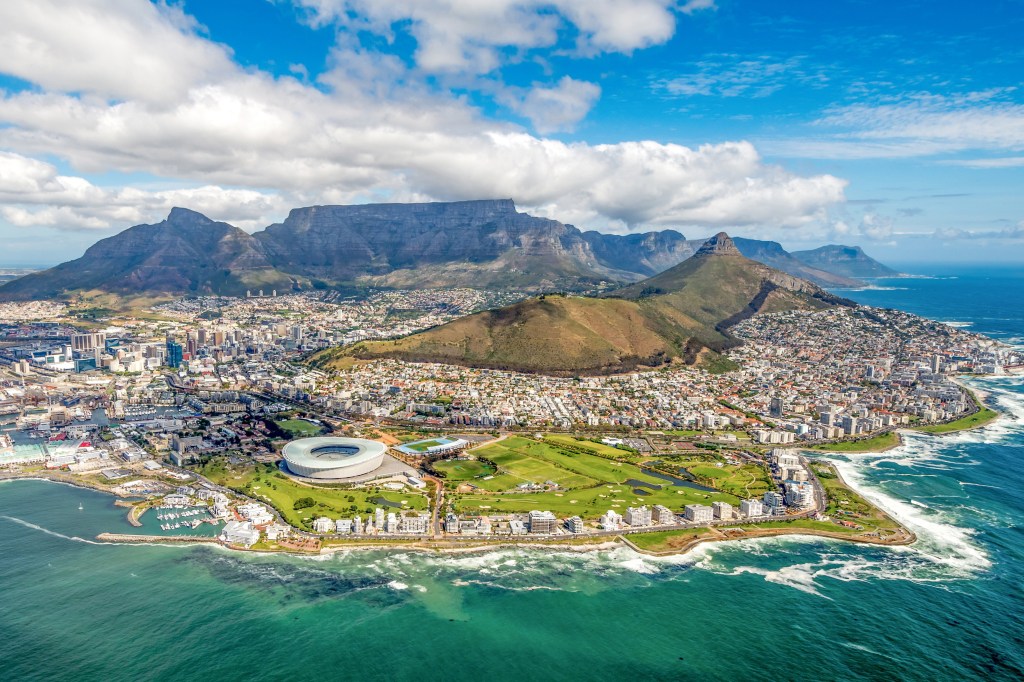
PICTURE PERFECT? The water crisis could scare off the millions of tourists who visit Cape Town each year and support the city’s economy.
BEN1183—GETTY IMAGESSomething Precious
Other regions of South Africa are donating water to Cape Town. But the city needs a long-term solution to its crisis.
Across the city, people are struggling to save water. They are taking 90-second showers. They are washing clothes less often. Using tap water to wash vehicles or fill swimming pools is illegal. Those caught using too much water are fined.
For some residents, rationing
ration
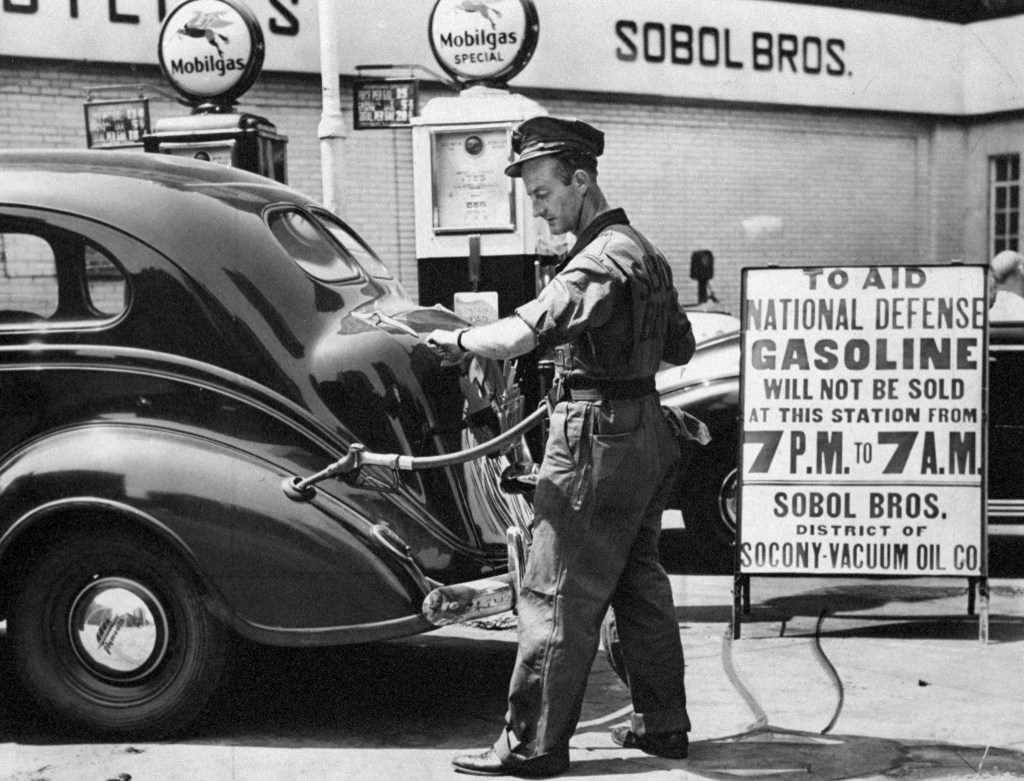 NEW YORK DAILY NEWS ARCHIVES/GETTY IMAGES
to control the amount of something that people are allowed to have, usually because there is not enough of it
(verb)
During the war, the government started rationing gas.
now feels normal. Kelson da Cruz keeps one container of water near the shower. Another he uses for brushing his teeth and washing his face. He uses non-drinking water to flush the toilet.
NEW YORK DAILY NEWS ARCHIVES/GETTY IMAGES
to control the amount of something that people are allowed to have, usually because there is not enough of it
(verb)
During the war, the government started rationing gas.
now feels normal. Kelson da Cruz keeps one container of water near the shower. Another he uses for brushing his teeth and washing his face. He uses non-drinking water to flush the toilet.
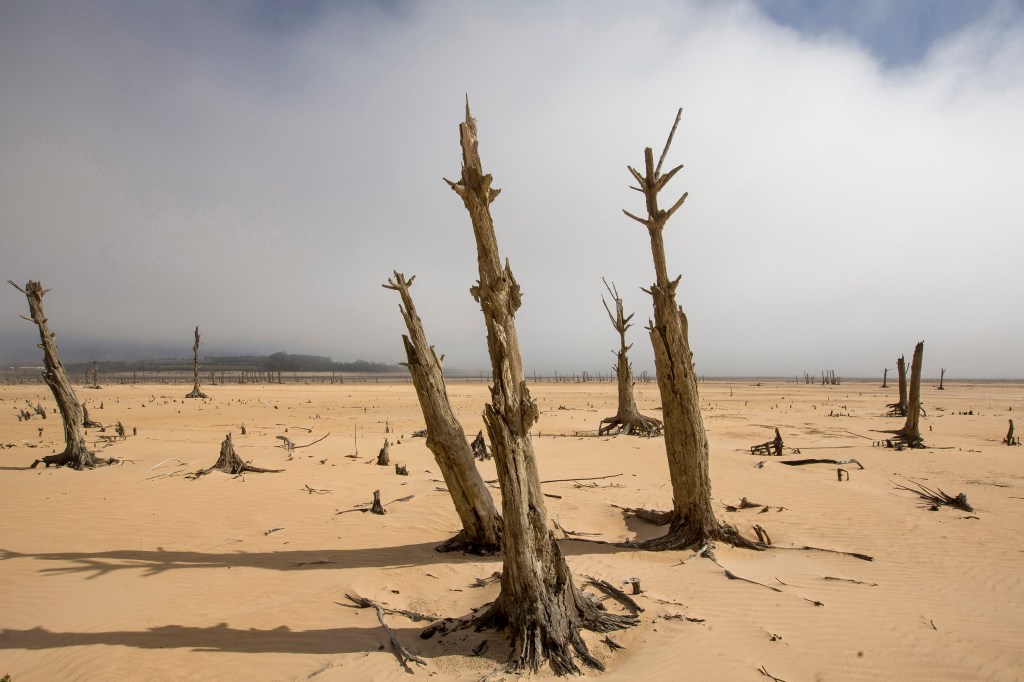
DRIED OUT Cape Town’s Theewaterskloof Dam was once the city’s main water supply. A lengthy drought has left the reservoir dry.
HALDEN KROG—PICTURE-ALLIANCE/DPA/AP IMAGESNot everyone is being careful. In January, only about 55% of residents were saving enough water. “We can no longer ask people to stop wasting water. We must force them,” Cape Town mayor Patricia de Lille said at the time. On February 14, the city noted that many more people were doing their part. But it added: “We now need all our residents to join in the savings drive.”
Public officials also share responsibility for the water shortage, experts say. They failed to prepare for the drought. Now the city is rushing to build facilities where seawater can be made fit for drinking.
Da Cruz sees a lesson in the crisis. “I think South Africa is, for the first time, really catching up with the rest of the world,” he said. “They have to change their habits. You can’t just take for granted something so precious.”
Assessment: Click here for a printable quiz. Teacher subscribers can find the answer key in this week's Teacher's Guide.





